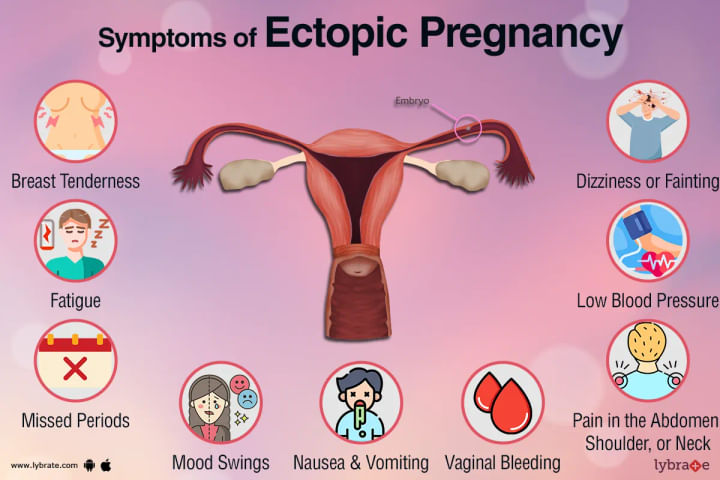How to prevent ectopic pregnancy
An ectopic pregnancy, often referred to as a tubal pregnancy, is when a fertilized egg implants outside of the uterus, usually in the fallopian tube. The pregnant person may be in a life-threatening situation as a result, and rapid medical care is necessary. The chance of an ectopic pregnancy can be decreased in a number of ways, while it cannot always be eliminated.
What is Ectopic Pregnancy?
In a typical pregnancy, the fertilized egg passes through the fallopian tube and into the uterus, where it implants and develops into a baby. Ectopic pregnancies, on the other hand, occur when the fertilized egg implants outside of the uterus, typically in the fallopian tube. Only one to two percent of pregnancies end in ectopic pregnancy, a dangerous but uncommon illness. For the expectant woman, it may be life-threatening and necessitates urgent medical care.
Symptoms of Ectopic Pregnancy
The signs of an ectopic pregnancy can resemble those of a regular pregnancy, such as;
- Breast tenderness
- Fatigue
- Missed periods
- Mood swings
- Nausea and vomiting
However, ectopic pregnancy can also cause additional symptoms, such as;
- Dizziness or fainting
- Low blood pressure
- Pain in the abdomen, shoulder, or neck
- Vaginal bleeding
If you are experiencing any of these symptoms, it is important to seek medical attention as soon as possible.
Risk Factors for Ectopic Pregnancy
There are several factors that can increase the risk of ectopic pregnancy, including;
- Age over 35
- Cigarette smoking
- Inflammation of the fallopian tubes (salpingitis)
- Pelvic infection
- Previous ectopic pregnancy
- Previous pelvic or abdominal surgery
- Use of in vitro fertilization (IVF)
Preventing Ectopic Pregnancy
While it is not always possible to prevent ectopic pregnancy, there are several steps that can be taken to reduce the risk;
Use birth control to prevent unintended pregnancy: One of the most effective ways to prevent ectopic pregnancy is to use birth control to prevent unintended pregnancy. There are many different types of birth control available, including oral contraceptives, injectable contraceptives, and long-acting reversible contraceptives (LARCs) such as the IUD (intrauterine device) and the implant.
Get treated for sexually transmitted infections: Some sexually transmitted infections (STIs) can lead to fallopian tube inflammation, which can raise the chance of an ectopic pregnancy. To lower the chance of an ectopic pregnancy, it is crucial to get tested for STIs and receive treatment.
Quit smoking: Smoking increases the chance of ectopic pregnancy and damages the fallopian tubes. Quitting smoking can help reduce the risk of ectopic pregnancy and improve overall reproductive health.
Avoid high-risk activities: Certain activities, such as using illegal drugs or engaging in rough sexual activity, can increase the risk of ectopic pregnancy. It is important to avoid these activities to reduce the risk.
Seek medical attention for pelvic pain: If you experience pelvic pain or other symptoms of ectopic pregnancy, it is important to seek medical attention as soon as possible. Serious consequences can be avoided with early detection and treatment.
Conclusion
Ectopic pregnancy is a serious condition that can be life-threatening for the pregnant individual. While it is not always possible to prevent ectopic pregnancy, there are several steps that can be taken to reduce the risk, including using birth control, getting treated for sexually transmitted infections, quitting smoking, avoiding high-risk activities, and seeking medical attention for pelvic pain. It is important to be aware of the symptoms of ectopic pregnancy and to seek medical attention if you experience any unusual symptoms during pregnancy.
Additionally, it is important to have regular check-ups with your healthcare provider during pregnancy to ensure that your pregnancy is progressing normally. This enables early detection of potential issues and timely treatment.
While ectopic pregnancy is a rare condition, it is important to be aware of the potential risks and to take steps to reduce the risk. By following these prevention tips and seeking medical attention when necessary, you can help ensure a healthy pregnancy for yourself and your baby.



+1.svg)
